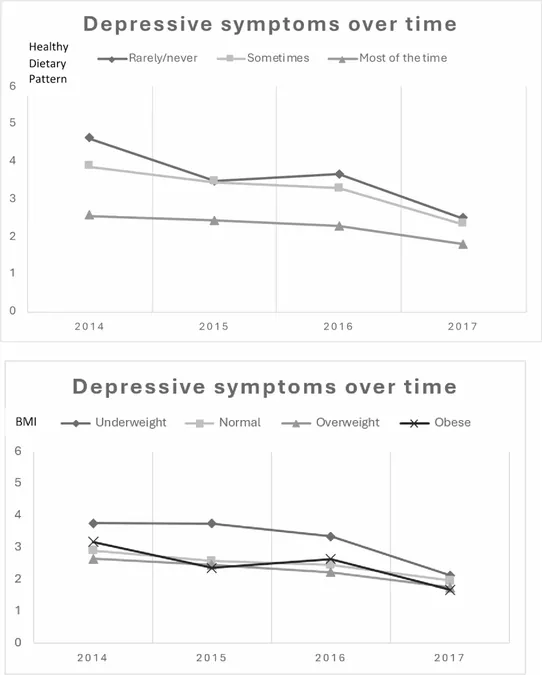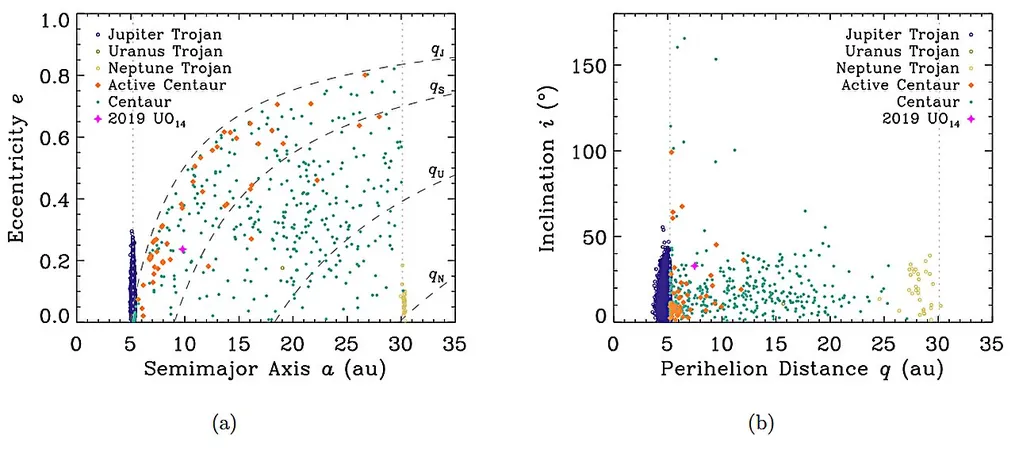
Unraveling the Link Between Diet, BMI, and Depression in Older Adults: A Deep Dive into New Research
2024-10-15
Author: Michael
Introduction
The intricate relationship between nutrition and mental health has become a hot topic in recent years, particularly as it pertains to older adults. While it’s widely acknowledged that a wholesome diet can bolster physical health, emerging evidence strongly suggests a correlation between diet quality and mental well-being. Recent studies indicate that a richer dietary pattern may serve as a protective mechanism against depression, even amidst rising concerns over mental health issues within aging populations. Interestingly, some research has suggested that older individuals with a higher body mass index (BMI) might experience lower risks of depressive symptoms, a phenomenon that runs contrary to trends observed in younger demographics. This article explores findings from a groundbreaking study that delves into how dietary habits and BMI impact depression over time in older adults.
Study Overview
Conducted between 2014 and 2017 with follow-ups every year, this cohort study analyzed data from 2,081 participants aged 65 and above in Hong Kong. The study centered on perceived eating habits, depressive symptoms, BMI measurements, and other essential demographic details. Researchers sought to evaluate the long-term trajectory of depressive symptoms relative to diet quality, BMI, and selected lifestyle variables.
Key Findings
Over the span of four years, participants demonstrated a notable reduction in depressive symptoms, with important predictors emerging from the data:
1. **High Diet Quality**: Participants with healthier dietary patterns reported significantly lower levels of depressive symptoms.
2. **BMI Factors**: Surprisingly, a higher BMI was also linked to lower depression levels, suggesting a nuanced understanding of how weight impacts mental health in older adults.
3. **Other Covariates**: Younger age, male gender, and fewer chronic diseases correlated with reduced depression levels as well.
As the study progressed, it became evident that not only did diet quality and BMI function as protective factors, but they also influenced the trajectory of depression over time – individuals with better diets and higher BMI were less likely to experience a sharp decline in mental health symptoms.
Implications for Well-Being
These findings present valuable insights for health interventions aimed at promoting positive mental health in the elderly. They underscore the importance of fostering healthier eating habits and suggest that, contrary to traditional views, a higher BMI in older adults may not always indicate worsening health. The study advocates for a re-evaluation of nutritional guidelines specifically catered to older adults, highlighting the potential for dietary interventions to mitigate depressive symptoms.
Challenges Faced
While these findings are promising, it is essential to acknowledge challenges related to this research. The study sample was limited and primarily drawn from low-income neighborhoods, which may not fully represent the broader aging population. Furthermore, reliance on self-reported dietary habits could result in bias and inaccuracies in nutritional assessment. Lastly, the four-year follow-up period may limit the understanding of long-term mental health trajectories in older adults.
Conclusion
This pivotal research lays the groundwork for future studies designed to further explore the intricate relationship between diet, BMI, and mental health in aging populations. As we face increasing numbers of older adults, understanding these dynamics could be crucial in developing effective strategies for improving mental health outcomes. It remains clear that a focus on nutrition can be a powerful ally in the fight against depression in older adults, opening new avenues for intervention and support.
Call to Action
Are you or someone you know navigating the complexities of mental health in later life? Explore nutritional advice tailored for older adults or consult healthcare professionals to create a dietary plan that supports both physical and mental health. Staying informed is the first step toward healthier living!









 Brasil (PT)
Brasil (PT)
 Canada (EN)
Canada (EN)
 Chile (ES)
Chile (ES)
 España (ES)
España (ES)
 France (FR)
France (FR)
 Hong Kong (EN)
Hong Kong (EN)
 Italia (IT)
Italia (IT)
 日本 (JA)
日本 (JA)
 Magyarország (HU)
Magyarország (HU)
 Norge (NO)
Norge (NO)
 Polska (PL)
Polska (PL)
 Schweiz (DE)
Schweiz (DE)
 Singapore (EN)
Singapore (EN)
 Sverige (SV)
Sverige (SV)
 Suomi (FI)
Suomi (FI)
 Türkiye (TR)
Türkiye (TR)